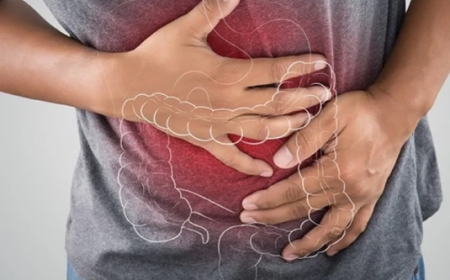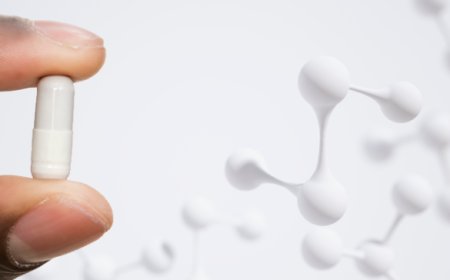How Parasitic Worms Trigger Digestive Issues and Diarrhea
Parasitic worm infections are a common cause of digestive problems in both children and adults, especially in areas with poor sanitation or unsafe water supplies.

Parasitic worm infections are a common cause of digestive problems in both children and adults, especially in areas with poor sanitation or unsafe water supplies. Often overlooked or misdiagnosed, these infections can lead to persistent symptoms such as diarrhea, abdominal pain, bloating, and nutritional deficiencies.
Among the many antiparasitic treatments available, Nitazoxanide stands out as an effective and well-tolerated medication. It is widely used for treating intestinal parasites, including those that cause gastrointestinal disturbances.
In this article, well explore how parasitic worms affect your digestive system, why they cause diarrhea, and how nitazoxanide 500 mgplays a crucial role in their elimination.
What Are Parasitic Worms?
Parasitic worms, or helminths, are organisms that live in the intestines or other tissues of a host organism, feeding off nutrients and interfering with normal body functions. They can infect humans via contaminated food, water, or soil and are particularly common in tropical and subtropical regions.
Common Types of Parasitic Worms:
-
Roundworms (Ascaris lumbricoides)
-
Hookworms (Ancylostoma duodenale, Necator americanus)
-
Tapeworms (Taenia species)
-
Whipworms (Trichuris trichiura)
-
Giardia and Cryptosporidium (technically protozoa, but often grouped with intestinal parasites)
While some people experience mild symptoms, others may develop severe gastrointestinal issues, particularly chronic diarrhea, which can lead to dehydration and malnutrition.
How Parasitic Worms Cause Digestive Problems
1. Mechanical Damage to Intestinal Lining
Worms attach themselves to the intestinal walls, where they may cause:
-
Inflammation
-
Bleeding
-
Damage to mucosal surfaces
This physical irritation disrupts normal digestion and absorption of nutrients, leading to symptoms like cramping, bloating, and diarrhea.
2. Malabsorption of Nutrients
Parasitic infections can interfere with:
-
Fat digestion
-
Vitamin and mineral absorption
-
Protein metabolism
This results in loose, fatty stools (steatorrhea) and nutrient deficiencies, particularly in children and vulnerable adults.
3. Toxin Release
Some parasites release toxins and waste products that:
-
Trigger immune responses
-
Irritate intestinal linings
-
Alter gut flora
This immune reaction can lead to inflammation, increased fluid secretion, and diarrhea.
4. Disruption of Gut Flora
Healthy gut bacteria are essential for digestion and immune defense. Parasitic worms can disturb this balance, increasing the risk of gastrointestinal infections and chronic digestive disorders.
Symptoms of Worm-Related Digestive Infections
Common gastrointestinal symptoms include:
-
Frequent, watery diarrhea
-
Gas and bloating
-
Abdominal cramps or pain
-
Loss of appetite
-
Nausea or vomiting
-
Fatigue or weakness
-
Unexplained weight loss
In some cases, people may notice worms in their stool, especially with heavy infestations.
Why Diarrhea Happens During a Worm Infection
Diarrhea is your bodys way of flushing out irritants, including parasites and the toxins they produce. Unfortunately, when the infection becomes chronic, so does the diarrhea, resulting in dehydration, mineral loss, and fatigue.
The body's immune response, particularly the production of pro-inflammatory cytokines, increases intestinal permeability and fluid secretion, further worsening diarrhea.
How Nitazoxanide Treats Parasitic Worm Infections
What is Nitazoxanide?
nitazoxanide 200 mg is a broad-spectrum antiparasitic and antiviral agent approved for the treatment of:
-
Giardia lamblia
-
Cryptosporidium parvum
-
Certain helminthic infections
It is especially effective in treating diarrhea caused by intestinal parasites, even in immunocompromised individuals.
How Nitazoxanide Works:
-
It disrupts the energy metabolism of parasites by inhibiting the pyruvate:ferredoxin oxidoreductase enzyme-dependent electron transfer reaction.
-
This inhibits parasite growth and replication, eventually leading to their death and elimination from the body.
Advantages of Nitazoxanide:
-
Effective for protozoal and helminthic infections
-
Well tolerated with few side effects
-
Suitable for adults and children over 1 year old
-
Short treatment course (typically 3 days)
Dosage and Administration
Always follow your doctors instructions, but a typical Nitazoxanide dose is:
-
Adults and children over 12: 500 mg twice daily for 3 days
-
Children 111 years: Dosed based on weight (consult pediatric dosing guide)
It is usually taken with food to enhance absorption and minimize gastrointestinal upset.
Where to Buy Nitazoxanide Online
If you're looking for a reliable way to access Nitazoxanide, DosePharmacy offers a safe, affordable, and convenient solution.
Why Buy from DosePharmacy?
-
? 100% genuine and certified products
-
? Fast, discreet shipping
-
? Competitive pricing
-
? Easy online ordering with customer support
Buy Nitazoxanide online from DosePharmacy to start treating your infection confidently and quickly.
Other Supportive Measures for Digestive Recovery
Alongside Nitazoxanide or other deworming treatments, consider these supportive tips:
1. Stay Hydrated
-
Replace lost fluids with water, oral rehydration salts, or clear broths.
-
Dehydration is one of the most dangerous complications of prolonged diarrhea.
2. Eat Light, Easy-to-Digest Foods
-
Bananas, rice, toast, applesauce (BRAT diet)
-
Avoid fatty, spicy, or dairy-based foods during acute symptoms.
3. Use Probiotics
-
After treatment, take probiotics to restore gut flora and promote healthy digestion.
4. Practice Good Hygiene
-
Wash hands thoroughly after using the bathroom and before eating.
-
Avoid consuming untreated water or undercooked meat common sources of worm eggs.
When to See a Doctor
Seek medical help if:
-
Diarrhea lasts more than 3 days
-
You experience fever, blood in stool, or severe abdominal pain
-
You have a weakened immune system (e.g., HIV/AIDS, cancer treatment)
-
You notice weight loss or signs of malnutrition
Conclusion: Stop Digestive Disruption at the Source
Parasitic worms can wreak havoc on your digestive system, often leading to persistent diarrhea, pain, and poor nutrient absorption. Recognizing the symptoms early and treating the infection with an effective antiparasitic like Nitazoxanide is key to fast and full recovery.











































